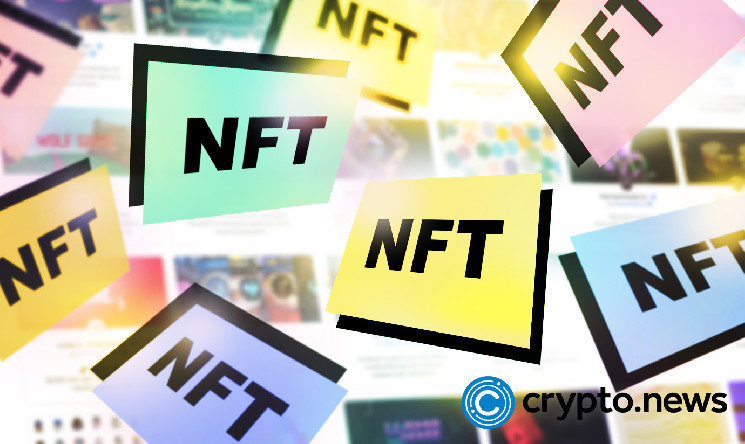Is It Possible to Make NFT Academic Papers (Scholarly Work)?

Non Fungible Tokens (NFTs) are a revolutionary form of assets that stemmed from the introduction of the blockchain system. Cryptocurrency enthusiasts have lauded NFT technology for its potential and application in various fields. It is set to revolutionize manufacturing, trade and entertainment. In line with this stipulation, education is another field that may benefit greatly from this technology. This explainer will explore the possibility of using NTFs in scholarly work.
Academic Papers
In the field of education, academic papers are one of the most vital resources in the learning process. They are often non-fictional, whose writers duly follow a formal process when going about their work. These papers mainly report on new inventions, research, experiment results or review existing reports.
Academic papers often showcase informed opinions that differ greatly from regular blogs or social commentary. The difference all comes down to the use of evidence. In this case, once a paper is written, the author needs to prove their argument using proof that showcases the use of scientific deduction methods and logic.
Once written, these academic papers undergo reviews by approved bodies before publication. Certified professionals in specific fields oversee the ‘blind reviews,’ a process to ensure that the information provided is factual, upholds ethical mandates, and the contents meet other required criteria.
Once done, papers are accorded a Digital Object Identifier (DOI). This DOI is a unique string of letters and numbers used to link the document in question to the web permanently. In layman’s terms, the number functions as the social security number for your document. Using this number alone, any interested reader can find the citation and documents on the internet. Given that the DOI is unique, it makes every listed academic paper independent.
NFT Compatibility
From the information mentioned above, we can make a solid case for the compatibility of NFT use in scholarly work. The NFT system is unique and bears all the necessary features to make academic papers even more secure and accessible in a transparent ecosystem. However, to make this conclusion, we must understand what NFTs are and how they work.
NFTs Broken Down
NFTs differ from cryptocurrencies because of the sole fact that they are not identical. This feature makes the NFTs non-tradable at equivalency since they do not hold the same value. Therefore, NFTs are each unique to the specifications or traits conceptualized in their creations. NTFs are created through ‘tokenization’. Via tokenization, developers create NFTs using real-world assets/ content that cuts across different forms of digital media.
The statement means that pictures, videos, music, and other digital media can become NFTs. The feature comes in handy, especially in an era where the internet prevails. Through “tokenization”, the media forms can be assessed and the information recorded to give each NFT its unique identity.
The identity of an NFT comes from using the cryptographic technology used for cryptocurrencies. This cryptographic process “tokenizes” the media in question and issues them with a unique identification code that cannot be replicated. The code is then stored on the blockchain ledgers distributed to users on the network.
Blockchain technology allows users to record information about the media in question alongside the unique code. This feature is revolutionary concerning recording property rights. These rights are recorded and updated securely in immutable ledgers on the blockchain network: Since the ledgers are distributed and updated simultaneously, tampering with them is impossible. This feature is the reason why most people believe cryptocurrencies are very secure.
From an assessment of how NFTs work, we can conclude they are ideal for safe-keeping scholarly papers. The NFT features offer authors and researchers great perks concerning ownership rights and security features for their work.
In this development, the authors can use NFTs to “tokenize” their work and key in all the vital information. This information will limit fraud and plagiarism, two critical problems that have plagued the academic sector for decades. The system will also add an extra layer of security to their life’s work. The NFTs can also work synchronously with existing academic frameworks, reducing the need for a system overhaul to accommodate the transition.
Author’s Take
As the world slowly digitises, NFTs will become even more important in various sectors. Like in other fields, NFTs seem to be cut out for users’ needs in the academic sector. By using the NFT framework for academic papers, researchers can maintain access to information while enjoying the perks of NFTs. Under this framework, the education sector will become more secure and streamlined and meet the needs of future generations. Thus, it is safe to say that adopting this NFT system in academia will happen in a trice.






 Bitcoin
Bitcoin  Ethereum
Ethereum  Tether
Tether  USDC
USDC  TRON
TRON  Dogecoin
Dogecoin  Cardano
Cardano  Monero
Monero  Bitcoin Cash
Bitcoin Cash  Chainlink
Chainlink  LEO Token
LEO Token  Stellar
Stellar  Zcash
Zcash  Litecoin
Litecoin  Hedera
Hedera  Dai
Dai  Cronos
Cronos  OKB
OKB  Tether Gold
Tether Gold  Ethereum Classic
Ethereum Classic  KuCoin
KuCoin  Cosmos Hub
Cosmos Hub  Gate
Gate  Algorand
Algorand  VeChain
VeChain  Dash
Dash  Stacks
Stacks  Tezos
Tezos  TrueUSD
TrueUSD  Decred
Decred  IOTA
IOTA  Theta Network
Theta Network  Basic Attention
Basic Attention  NEO
NEO  Synthetix
Synthetix  Qtum
Qtum  Ravencoin
Ravencoin  0x Protocol
0x Protocol  DigiByte
DigiByte  Zilliqa
Zilliqa  Nano
Nano  Siacoin
Siacoin  Numeraire
Numeraire  Waves
Waves  Ontology
Ontology  Status
Status  Enjin Coin
Enjin Coin  Hive
Hive  BUSD
BUSD  Pax Dollar
Pax Dollar  Lisk
Lisk  Steem
Steem  Huobi
Huobi  OMG Network
OMG Network  Bitcoin Gold
Bitcoin Gold  NEM
NEM  Augur
Augur